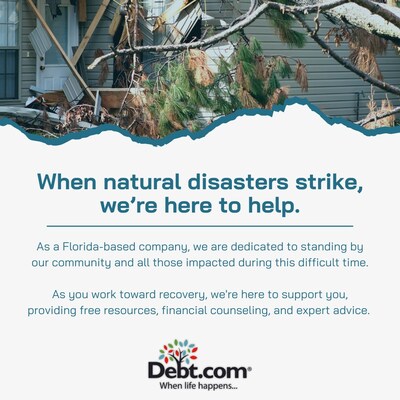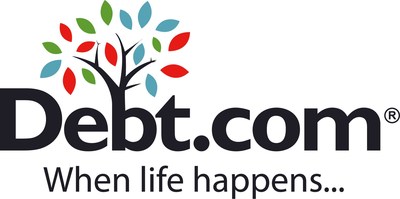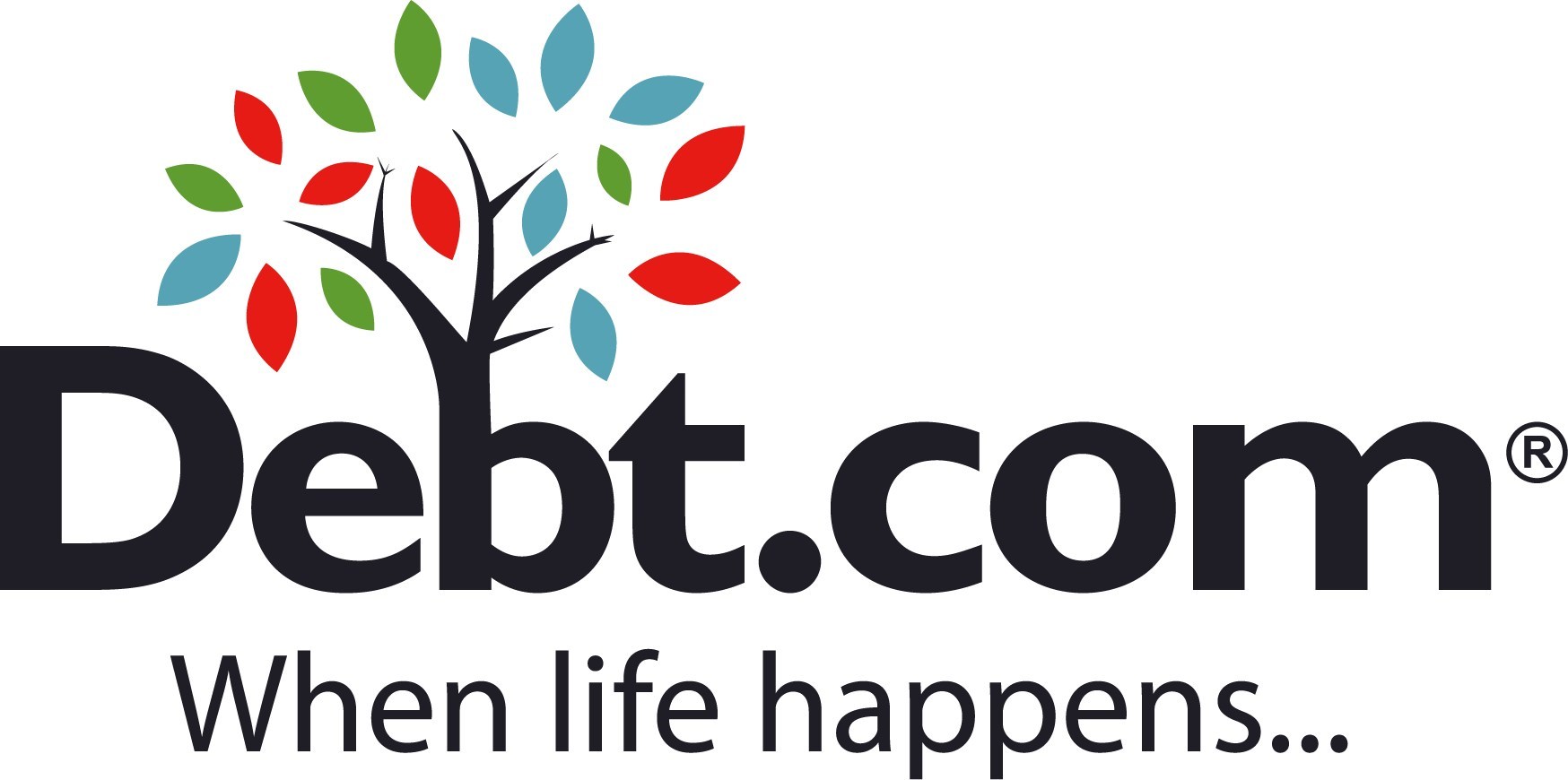FORT LAUDERDALE, Fla., Oct. 11, 2024 /PRNewswire-HISPANIC PR WIRE/ — In the aftermath of Hurricanes Helene and Milton, thousands of families and individuals are facing not only physical damage to their homes and property but also serious financial challenges. Debt.com, a leading provider of financial education and debt relief solutions, is stepping up to help those affected navigate the economic impact of these devastating storms.

“With two powerful hurricanes hitting back-to-back, many people are dealing with unexpected costs, lost income, and increased debt,” says Don Silvestri, President of Debt.com. “It’s easy for these financial strains to spiral out of control if people don’t know where to turn for help. We want to provide resources and guidance to help these families stabilize their finances and avoid long-term hardship.”
Debt.com is offering free resources, financial counseling, and expert advice for storm victims to help them understand their options, rebuild, and recover. The organization has also shared a list of personal finance tips and government agencies that can help during this difficult time.
Personal Finance Tips for Hurricane Victims
- Document All Damage and Expenses: Keep detailed records of storm damage, repairs, and temporary living expenses. This will be crucial for insurance claims and any potential assistance from FEMA.
- Contact Your Insurance Provider First: Call your insurance company to understand what’s covered and how to file a claim. Homeowners, renters, and auto insurance policies may all have provisions for storm damage.
- Reach Out for Help if You Can’t Pay Your Bills: Many creditors and utility companies offer temporary payment relief in times of disaster. Contact your lenders and service providers to ask about deferment options and waived fees.
- Be Cautious When Using Credit: If you have to use credit cards to cover emergency expenses, be strategic. Use the card with the lowest interest rate and prioritize paying off those balances as soon as possible.
- Create an Emergency Budget: If your income has been disrupted or you’re facing higher expenses, build a temporary budget that prioritizes essentials like housing, food, and medical care. Cut back on non-essentials until you have a clearer picture of your financial situation.
- Avoid High-Cost Loans and Scams: After natural disasters, scammers often target victims with high-interest loans or fraudulent services. Stick to reputable sources of assistance and avoid payday loans or predatory lending.
- Seek Professional Advice: If you’re feeling overwhelmed by your financial situation, reach out to Debt.com for a free consultation. They can help you develop a recovery plan and provide guidance on managing debt.
Government Resources Available for Hurricane Victims
- Federal Emergency Management Agency (FEMA):
FEMA provides financial assistance for temporary housing, home repairs, and other disaster-related expenses. Visit www.disasterassistance.gov or call 1-800-621-FEMA (3362) for help. - Small Business Administration (SBA) Disaster Loans:
The SBA offers low-interest disaster loans to homeowners, renters, and businesses to help cover losses not fully covered by insurance. Visit www.sba.gov or call 1-800-659-2955 for details. - American Red Cross:
The Red Cross provides emergency shelter, food, and financial assistance. Visit www.redcross.org or call 1-800-RED-CROSS (733-2767). - Department of Housing and Urban Development (HUD) Disaster Resources:
HUD offers foreclosure relief and other housing assistance for those in disaster areas. Contact a HUD-approved housing counselor at 1-800-569-4287 or visit www.hud.gov. - State and Local Emergency Management Agencies:
Many states and counties have additional resources and recovery programs for disaster victims. Check your state or local emergency management website for specific help.
Rebuilding takes time, but you don’t have to go through it alone. Debt.com encourages anyone struggling financially after Hurricanes Helene and Milton to seek help before debt becomes unmanageable. “These storms can have a lasting impact not just on your home, but on your finances as well,” Silvestri adds. “By taking the right steps now, you can protect yourself from making rushed financial decisions that could lead to long-term debt.”
For personalized advice or to schedule a free counseling session, visit www.debt.com.
About Debt.com
Debt.com is a leading provider of financial education and debt relief solutions, helping Americans find the path to financial stability. Through expert guidance, educational resources, and personalized counseling, Debt.com empowers people to tackle their debt challenges and build a brighter financial future.

Photo – https://mma.prnewswire.com/media/2528781/When_natural_disasters_strike__we_re_here_to_help___1.jpg
Logo – https://mma.prnewswire.com/media/1576979/Debt_com_Logo.jpg
SOURCE Debt.com







